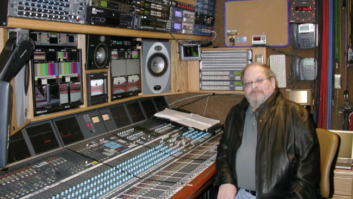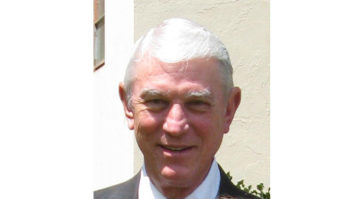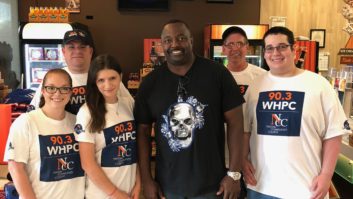I am not what you’d call an early adopter in personal use of technology. It’s not that I’m afraid of new things, technological or otherwise; it’s that I need to be convinced of the utility of a product or service before I invest my precious time in it.
Some consumers, presented with the latest portable device or social trend, will jump into an entire cycle of trial, adoption and disposal. I typically am content to watch with interest, deciding only after awhile whether the offering is likely to improve the quality of my life. Call me a careful adopter.
This approach fits my personality; I like things with staying power. I drive a car with 200,000 miles on it. It works and still gives me 39 mpg on the highway; why replace it? Nor can I be bothered with new media gizmos, late-model cars or TV celebrities just because someone is going gaga about them today; most are fads and likely to be consigned to the “Out” column tomorrow.
(Further, I am annoyed when I adopt but then see my chosen product or service discontinued or replaced within a year. You know the drill: “As a service to you, Quicken is discontinuing support of the online features of your 2006 version of our personal finance software, which you need to track your investments. We’re happy to offer you the latest version for $45 to $75 even though it does nothing important that the old version doesn’t do.”)
In touch
All of this to say that I took my time before joining Facebook last year.
The social networking Web site, which was created by a Harvard student and initially aimed at college-age users, just turned five years old and now has 175 million active users, according to the New York Times.
I was one of the first adults in my personal circle on it; when I signed up, my teenage godchildren thought it was remarkable to have an adult “friend” them, which they thought was “so cool, Uncle Paul!” But FB has evolved quickly into a pool for all ages to swim in.
This topic has little to do with radio, directly. But as a user I find myself musing about how consumer media habits evolve; and I monitor my own.
My first impression after signing up was a feeling of intimidation, akin to standing just inside the door of a big party at which everyone seems to know everyone else. I’d locate someone I knew, see on her page that she had 100 friends (such data are important in Facebook world) and wonder if others would chuckle at my measly five or six pals.
Well, that didn’t last; with 120 connections at present, I have more friends than I could keep track of outside of FB — though my total likely would make a teenager simply feel sorry for me (family friend Megan, a college freshman, has 839). I have no intention of pushing aggressively for more, but I like it when an unexpected old friend turns up.
My professional situation is unusual in that I know a lot of people through Radio World; and I would leap to much higher numbers of “friends” if I were to use FB as a professional tool rather than a social one; but I made a conscious decision to separate those worlds, and I more recently began using LinkedIn as my professional networking tool (if you’re there, feel free to reach out to me).
So I don’t feel like a lonely outsider on Facebook. But even with a lot of friends, you can feel overwhelmed by the constant exchange of information. The experience also can leave you with a false sense that other people’s lives are more exciting than your own, what with so many status reports to follow, so many conversations happening between Chris and Lauren, Scott and Yasmin, Michael and David and Rachel — forgetting that each discussion is going on in its own smaller circle and that each tends to consist more of something like a raw feed of consciousness than an in-depth conversation.
Taken in aggregate, though, it can seem overwhelming to a shy person, if exciting to a gregarious one.
Also of concern is the sharing of personal information and the long-term ownership of that data.
When I signed up, I immediately had to confront the question of how much information I wanted to provide to the system and how much I wanted to have visible to others. Thanks to FB, I can tell you right now the exact birth dates of a lot of people who chose to show that info, along with a great deal of other personal information about them. Let’s face it, even such relatively innocuous data can be used to ill purposes these days.
Some friends (typically nearer in age to me than younger) say they don’t want to get on Facebook because they believe it will become “yet another thing I have to do each day.” Yup. In fact I do find myself thinking, “I need to get on there” — to clean out my In Box, see if I have any new friend requests, to make sure I haven’t missed anything important — rather than “I want to get on there.”
But I’ve come to realize that most of the information I collect from FB is not critical anyway. True, I learned recently of the death of a theater acquaintance in a motorcycle wreck; but that is unusual. Most of the time, the news I find is light, fleeting and fun, and I could easily visit Facebook less often and not feel much out of touch. (More committed users will have a different view about that.)
Sense of community
Facebook has done an exceptional job putting me in touch with people who were once part of my life but from whom I might never have heard again. This has been one of its most gratifying aspects. It’s true that I already was in touch with people about whom I care deepest; but Facebook also makes it easier to stay up with them.
I like being able to post photos, videos and files, to tell a lot of people at once about the experiences I’m having today. There’s a spotlight quality to it as well that appeals to my stage actor side: “Hey, everybody, look at me!”
My initial feelings — intimidation at the scope, awe at the social model — have subsided. I’m reconfirmed in my belief that any tool is what we make out of it.
For me, Facebook is social but not often meaningful. The experience, again just for me, is broad, not deep. It works; but I’ll probably spend less time with it in the future than I did at first.
Most relevant to radio, FB hasn’t otherwise seemed to change my media consumption habits. It hasn’t caused me to use radio differently, as far as I can tell.
This careful adopter still has a place in his life for his favorite radio stations.
Facebook seems likely to be with us for awhile. From a radio industry strategic standpoint, the lessons I take away are that interaction and personalization sell; that people enjoy experiences that make them the center of attention; and that even when we think consumers have absorbed enough platforms in their lives to fill up the hours, there’s always room for more. Most of all, people even in the new millennium still hunger for a sense of community.
Is that good or bad news for radio? It depends on what you make of it.
What new platforms have made the greatest impression on you as a radio consumer and industry professional? Tell me at [email protected].
The author is Editor in Chief of Radio World U.S.







